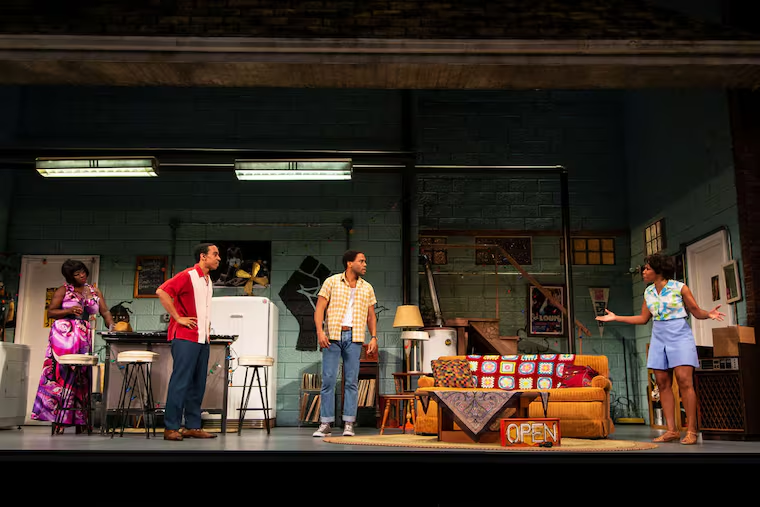‘Detroit ’67’ at McCarter: Disappointing production of Dominique Morisseau’s study of riot-torn city
A brother and sister run after-hours parties in a neighborhood of Detroit as the riots near that will tear the city apart. Morisseau is one of the country's most sought-after playwrights; this is her breakout play. Alas, the production ends up being tame and predictable.

Detroit '67 is the first of Dominique Morisseau's trilogy The Detroit Project. And as Morisseau just won a MacArthur Fellowship, and as I hadn't seen either of the two latter plays, I was much looking forward to this one at the McCarter Theatre. I was, to put it mildly, disappointed.
In 1967, there were riots in Detroit, and it is that upheaval, basically a confrontation between the police ("pigs," in the decade's vernacular) and Negroes (then the prevailing term) when Gov. George Romney called in both the Army and the National Guard to quell the violence. The play is also about the Motown music that is part of the city's identity.
The scene is set (designed by Riccardo Hernandez) in the basement of a rowhouse; the walls are covered with an Ali poster, a Joe Lewis poster, a velvet painting. and a huge black fist painted on the cinderblock wall. Modest, practical Chelle (Myxolydia Tyler) and her ambitious, kind-hearted brother Lank (Johnny Ramey) inherited the house from their parents. They hold after-hours parties in the basement to make money and have some fun. Smooth-talking Sly (Will Cobbs) is Lank's best friend, and sexy, wild Bunny (Nyahale Allie) is Chelle's best friend. All the actors perform embarrassing stereotypes that director Jade King Carroll seems to have encouraged.
Sly tries to talk Lank into using the money his parents left him and his sister to buy a bar. (If this sounds familiar, it almost duplicates the plot pivot of Lorraine Hansberry's A Raisin in the Sun. You'll hear another echo when Lank says he was trying "to be somebody.") The plot thickens in Scene 2, when the two men rescue a white woman, Caroline (Ginna LeVine), who has been beaten into unconsciousness. Her presence is a danger — both because the police are looking for her and because Lank falls for her ("white girls are a natural aphrodisiac").
One character after another will say, "I have a dream." The plot is so obvious you know what's going to happen before it does. Likewise, the dialogue is so trite and predictable you know what a character's reply will be before you hear it. A good play about Detroit in 1967 could bring that recent history to a new young audience, but it is unlikely anyone will be stirred by this tame and, finally, merely domestic drama.
Lank tells his sister, "Life isn't about just keeping what you got. It's about building something new." Morisseau should have taken his advice about playwriting.